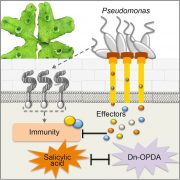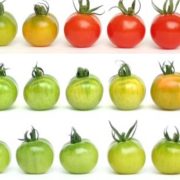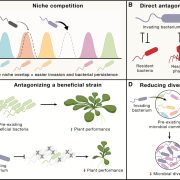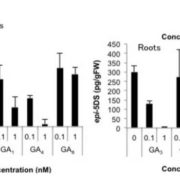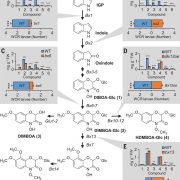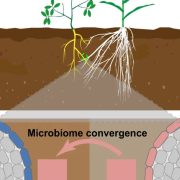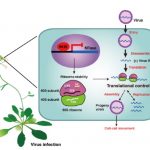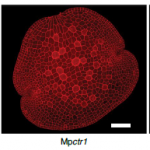Ethylene signaling mediates host invasion by parasitic plants (Science Advances)
 Parasitic plants cause agricultural devastation across the globe, yet the molecular basis of their parasitism is largely enigmatic. They grapple and intrude into the host roots with an organ called the haustorium. Haustoria formation is induced upon recognition of host-derived haustorium-inducing factors (HIFs), including quinones and phenolics, but HIFs are not sufficient to complete haustoria differentiation and development; HIF-induced haustoria formation is halted when the host is not available. To identify missing factors that determine the fate of haustoria cells, Cui et al. conducted a forward genetic screening in the model parasitic plant Phtheirospermum japonicum. Successful host invasion depends upon switching off cell proliferation at the haustorium apex. The authors found that genes involved in ethylene signaling are required for timely termination of haustorium growth but are dispensable for early haustorium initiation. They further showed that, P. japonicum was less invasive to host Arabidopsis mutants with no or excessive ethylene production, suggesting that host-derived ethylene may play an important role in successful invasion of the parasite. The authors suggest that the HIFs might indicate that a host is near, causing the initiation of haustorium formation, and host-induced ethylene indicates that the haustorium has reached its target, causing the haustorium to stop elongating. (Summary by Tatsuya Nobori @nobolly) Science Advances 10.1126/sciadv.abc2385
Parasitic plants cause agricultural devastation across the globe, yet the molecular basis of their parasitism is largely enigmatic. They grapple and intrude into the host roots with an organ called the haustorium. Haustoria formation is induced upon recognition of host-derived haustorium-inducing factors (HIFs), including quinones and phenolics, but HIFs are not sufficient to complete haustoria differentiation and development; HIF-induced haustoria formation is halted when the host is not available. To identify missing factors that determine the fate of haustoria cells, Cui et al. conducted a forward genetic screening in the model parasitic plant Phtheirospermum japonicum. Successful host invasion depends upon switching off cell proliferation at the haustorium apex. The authors found that genes involved in ethylene signaling are required for timely termination of haustorium growth but are dispensable for early haustorium initiation. They further showed that, P. japonicum was less invasive to host Arabidopsis mutants with no or excessive ethylene production, suggesting that host-derived ethylene may play an important role in successful invasion of the parasite. The authors suggest that the HIFs might indicate that a host is near, causing the initiation of haustorium formation, and host-induced ethylene indicates that the haustorium has reached its target, causing the haustorium to stop elongating. (Summary by Tatsuya Nobori @nobolly) Science Advances 10.1126/sciadv.abc2385


